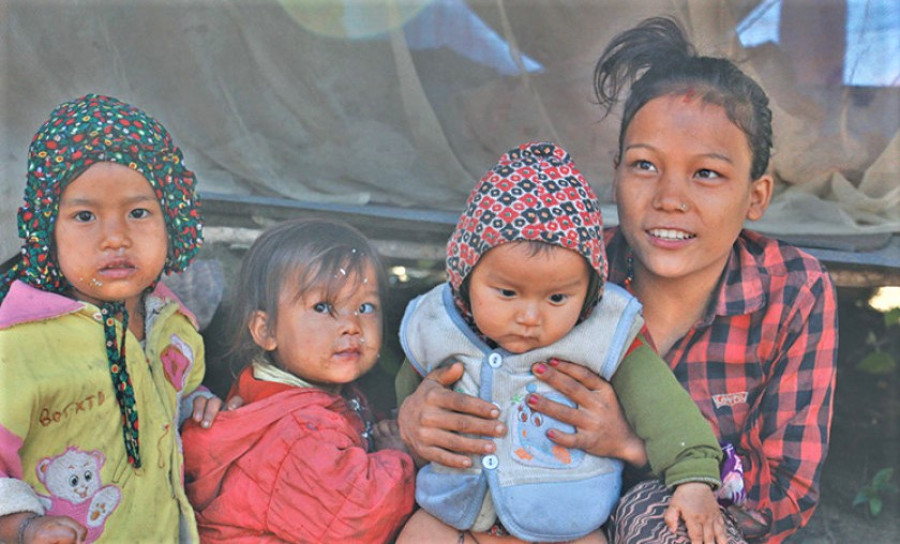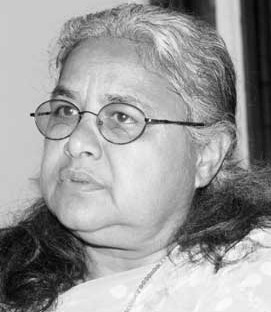Columns
Evolving gender equations
Women should speak up for justice notwithstanding concerns of family reputation or social pressure.
Sushila Karki
When Sumani Devi (name changed) was 16, her parents married her off to an old man. Her widower husband had married Sumani, a girl belonging to a poor family, to have a lady care for him in old age. But only after the splitting of family assets did the man’s four sons—from his first marriage—give their consent for the wedding. The old man got only two katthas of land and a one-room straw hut as his share. Each son gave him two quintals of paddy per year. However, he still owned real estates, livestock, and wooden houses. His sons and other family members had warned him that if he died soon, his young wife might elope with another man along with his property. Perhaps due to this fear, he was afraid to claim a larger portion of his property.
After a while, Sumani gave birth to three sons. Her husband took care of the family expenses. Unfortunately, when Sumani was 22, her husband passed away. After the funeral and final rituals, no family member ever bothered communicating with her. Her stepsons were unwilling to offer her paddy as before.
Because Sumani Devi married after the family’s assets were split, she lacked the legal authority to seek property from her stepsons. She did not, however, lose her patience. She started working as a maid in the homes of her wealthy neighbours. People from the community provided Sumani with food, clothes and employment. She was hired as a peon at a neighbouring school. Since she was poor, school committee members helped her three sons find opportunities to get free tuition at the local school. Her sons grew up, got higher education degrees and found employment. Her family now consists of educated sons and daughters-in-law. They now enjoy good social and financial standing.
There is another story involving my own childhood friend. When she was 14, she got married to a 45-year-old man. She gave birth to a boy when she was 16, and another one soon after. Her husband passed away when she was twenty. He was an alcoholic who had sold the family property to fund his drinking and gambling. She had to plead for donations for the husband’s final ritual. After her husband’s death, she returned to her parents’ home and took care of her two young children as well as her parents. She began working part-time at a factory, but the pay wasn’t enough to support her family. She married a noble, mature man and got financial security. When I think back on my earlier years, I recall hearing about a lot of women’s sad experiences. Some were victims of abuse, torture, and abandonment by family; others were sexually exploited for financial gains.
Times are changing, and the rules governing gender equality are evolving. The Muluki Ain of 1960, which was frequently amended, has replaced several restrictive laws against women. Gender discriminatory laws have been abolished, thanks to the Mulki Ain 2002’s 11th amendment. The gender equality statute’s 2007 update to Mulki Ain has also significantly changed women’s status. Women now have complete legal rights on property. They no longer have to seek approval from the male members of their family before disposing of their sole ownership of the property.
The purpose of the anti-witchcraft law is to penalise the offender. The Muluki Ain from 1960 has since been revoked. Instead, separate rules based on the Muluki Devani Samhita 2074 and Muluki Karyabidhi Samhita 2074 were developed in 2017. An underage girl can now immediately decline a child marriage. The police and municipal authorities can invalidate any illegal marriage. The law prohibits forced marriage, among other things. When a woman is subjected to abuse and torture, she has the legal right to file for divorce. A woman has the right to ask her husband, father or sibling to divide any inheritance among them. If the perpetrator of sexual violence, sexual assault, rape, or sexual abuse is proven, there will be legal actions against him/her. The swift justice system is used to resolve such cases in a reasonable amount of time. As a result, there are now strict laws protecting women from abuse and injustice.
However, there are some unanswered questions: Do women in Nepal today have access to freedom as guaranteed by the constitution and the laws? To what extent is freedom restricted in relation to women's rights? What context proves that gender equality is practised among Nepalese women society? Women in rural areas are content with two meals per day and a few sets of less expensive clothing their parents supply to hide their bodies.
Women used to put in long hours day and night to raise the economic position of their male members. Ten percent of educated working women in urban areas struggle to get from house to work while fulfilling childcare responsibilities. A small percentage of women from wealthy families who were able to live aristocratic lives and attend lavish parties to show off their high social status felt as though their right to freedom had been fully realised. Only a small percentage of women in Nepal are aware of gender justice and equality. They are not afraid to argue their case and defend their rights in court. Yet, the majority of women are illiterate or ignorant. Because of this, a sizable portion of this class is uninterested in litigating a case against their family to protect their property rights. This is due to personal animosity and the fear of breaking the mutual relationship among relatives.
Another issue is the stretched legal process and the lengthy period required to carry out a court order. It is the fundamental reason why most women are unwilling to take service from the court.
Without a doubt, if a woman experiences injustice, she should speak out to demand justice. But 80 percent of women are concerned about harming their families’ reputation, jeopardising their livelihood, their children’s standing on their own feet in the future, and their safety. Many women and girls have committed suicide as a result of the constant pressure from their husbands and in-laws or have been killed by their husbands or in-laws. On the other hand, parents and brothers frequently kill women and girls in the Terai region in the name of honour killing. Forced marriages are common among the major families in the Terai region, where choice marriages are forbidden. In general, parents do not support their daughters’ rebellion.
Contrarily, it appears that a small minority of women do not comprehend what gender equality and the independence of women imply. They are abusing the spirit of gender equality. Family conflicts among migrant workers have thus become a big concern for Nepal. Because of how their wives behave, many migrant workers are now impoverished. Their kids are no longer under their guardianship and are living on the street. Children from broken families typically experience unfavourable repercussions in their development and schooling. Women should strive to be educated, qualified, self-reliant, and independent. Just disputing the seizure of family property under the guise of equal rights does not render someone independent; rather, only malice and discontent are produced within the family. One should try to comprehend that women are forced to be kind, tolerant, benevolent, and liberal because they were given the extra ability by God to beget, nurse and nourish humans. Some women believe that being wealthy means never having to struggle in life. This superficial approach can damage any person’s life.




 14.12°C Kathmandu
14.12°C Kathmandu















